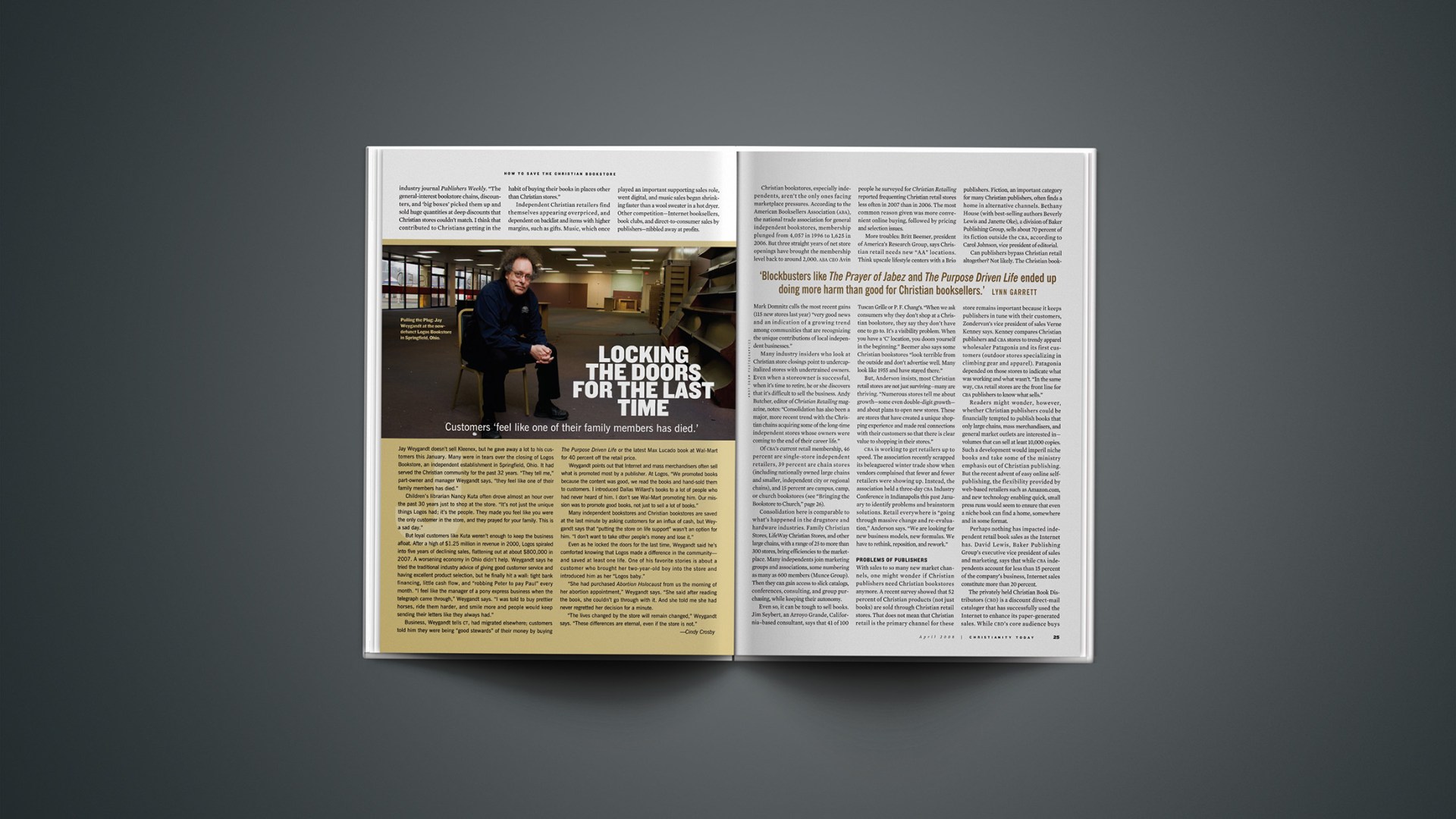Jay Weygandt doesn’t sell Kleenex, but he gave away a lot to his customers this January. Many were in tears over the closing of Logos Bookstore, an independent establishment in Springfield, Ohio. It had served the Christian community for the past 32 years. “They tell me,” part-owner and manager Weygandt says, “they feel like one of their family members has died.”
Children’s librarian Nancy Kuta often drove almost an hour over the past 30 years just to shop at the store. “It’s not just the unique things Logos had; it’s the people. They made you feel like you were the only customer in the store, and they prayed for your family. This is a sad day.”
But loyal customers like Kuta weren’t enough to keep the business afloat. After a high of $1.25 million in revenue in 2000, Logos spiraled into five years of declining sales, flattening out at about $800,000 in 2007. A worsening economy in Ohio didn’t help. Weygandt says he tried the traditional industry advice of giving good customer service and having excellent product selection, but he finally hit a wall: tight bank financing, little cash flow, and “robbing Peter to pay Paul” every month. “I feel like the manager of a pony express business when the telegraph came through,” Weygandt says. “I was told to buy prettier horses, ride them harder, and smile more and people would keep sending their letters like they always had.”
Business, Weygandt tells CT, had migrated elsewhere; customers told him they were being “good stewards” of their money by buying The Purpose Driven Life or the latest Max Lucado book at Wal-Mart for 40 percent off the retail price.
Weygandt points out that Internet and mass merchandisers often sell what is promoted most by a publisher. At Logos, “We promoted books because the content was good, we read the books and hand-sold them to customers. I introduced Dallas Willard’s books to a lot of people who had never heard of him. I don’t see Wal-Mart promoting him. Our mission was to promote good books, not just to sell a lot of books.”
Many independent bookstores and Christian bookstores are saved at the last minute by asking customers for an influx of cash, but Weygandt says that “putting the store on life support” wasn’t an option for him. “I don’t want to take other people’s money and lose it.”
Even as he locked the doors for the last time, Weygandt said he’s comforted knowing that Logos made a difference in the community—and saved at least one life. One of his favorite stories is about a customer who brought her two-year-old boy into the store and introduced him as her “Logos baby.” “She had purchased Abortion Holocaust from us the morning of her abortion appointment,” Weygandt says.
“She said after reading the book, she couldn’t go through with it. And she told me she had never regretted her decision for a minute.
“The lives changed by the store will remain changed,” Weygandt says. “These differences are eternal, even if the store is not.”
Copyright © 2008 Christianity Today. Click for reprint information.
Related Elsewhere:
This article and “Bringing the Bookstore to Church” accompanied “How to Save the Christian Bookstore“
The 2008 books issue of Christianity Today also included the annual book awards.










